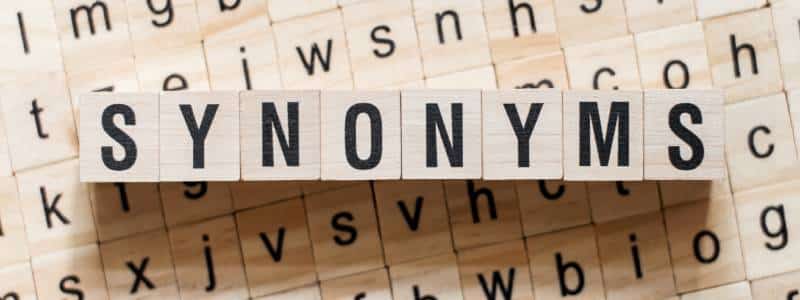You probably have seen these two terms in writing and have wondered the difference between them and when to use them. Both words are closely related to each other. But, what is the correct use for each one?
“Emphases” is the plural form of the word “emphasis.” We use “emphasis” when we name a single object. While “emphases” is used to refer to a list of things.
In this article, you will learn more about these words. We will talk about the origin of these words, what makes “emphases” the plural form of “emphasis.” We will see how they are similar to each other. Also, you will learn some other uses for this word. Before concluding, we will see some sample sentences using both terms.
Origin And Etymology Of Emphasis
The word emphasis comes from Latin and Greek. In Latin, the expression “emphasis” referred to the Greek word “emphainein,“ which means “I show.”
The greek prefix “em-” could be translated to “in,” and the suffix “-phainein” means to exhibit.
Meaning Of The Word Emphasis
Emphasis is a variable noun. Some of its meanings include:
- To give importance to a particular activity.
- To draw people’s attention towards something.

Other Uses Of The Word Emphasis
Here are other uses of the word emphasis:
- We can use it in our speech when we want to give weight to something meaningful.
- People use it to express special attention to something in particular.
- We can use it in writing to highlight an important word. For example, when you use bold or italic.
- We refer to emphasis in phonetics to talk about the stressed syllable in words.
Emphasis Vs. Emphases: Phonetics

In both words, you will stress the first syllable. The main pronunciation difference between these words is the last vowel sound.
You will start with your mouth wide open to make the /e/ sound, the same vowel sound in the word “end.” Then you will close your lips to switch to the /m/ sound. After that, your lips move forward, placing your bottom lip in front of your teeth to pronounce the unvoiced /f/ sound. The next transition would be to the /s/ sound because the a is a schwa sound and doesn’t have any stress.
Here is where the difference occurs. To say “emphasis,” the “i” vowel sounds like a short /ɪ/, like the vowel sound in “it,” and you end with another /s/ sound.
To pronounce “emphases,” the “e” vowel sounds like a long /i/, just like the vowel sound in the word “bee,” and you end with another unvoiced /s/ sound.
Grammar Rules That Make Emphases The Plural Form Of Emphasis
There are English rules that dictate how we should form certain words. In the case of writing and speaking, grammar directs the rules.
The word “emphasis” is a regular noun ending in -is. We replace the -is for -es to change the word from singular to plural.
Other Nouns That Apply To This Rule
The same rule applies to all nouns ending in -is. Some other examples are:
- Thesis Theses
- Analysis Analyses
- Synopsis Synopses
- Nemesis Nemeses
- Kinesis Kineses
- Crisis Crises
- Pelvis Pelves
- Oasis Oases
- This These
- Axis Axes
Example Sentences Using Emphasis
Here we’ll show you some sample sentences using the word “emphasis”:
- I’m always so nervous watching Miss universe; I don’t like it when the presenter pauses for emphasis before saying who won.
- Anglia TV’s emphasis is on Norwich and the district.
- The teacher asked us to use a yellow highlighter to give emphasis.
- Job interviews are tricky; now, companies place particular emphasis on the candidate’s body language.
- I don’t know if ever you noticed, but our boss put great emphasis on this month’s goal.
- The evaluators thought he didn’t put the proper emphasis on questioning his ideas.
Example Sentences Using Emphases
Here we’ll show you some sample sentences using the word “emphases”:
- In this course, we will analyze the emphases, difficulties, and principles of the different philosophers.
- The emphases of this job opening are front-end development, main function modules, program management, and SQA.
- Month after month, managers change emphases in this department.
- It is challenging to recognize emphases in a sentence.
- Within this company, there had always been diverse emphases and agendas.
- They executed different emphases and methods in their practice.
- Even though we are all working on the same project, we all have different emphases on development.
Other Terms Derived From The Word Emphasis
Emphasize: it is a regular verb. Emphasize means something important. Its past tense is “emphasized.” Other words that can substitute “emphasize” are:
- Accentuate
- Play up
- Intensify
- Exaggerate
Antonyms of the word “emphasize” are:
- Understate
- Downplay
- Diminish
- Underrate
Emphatic: it is an adjective that describes using emphasis to describe something. There is ambiguity with this adjective because it is also related to the word empathy. Even though the word “empathy” and the word “emphasis” are similar in writing, these words have different meanings. Other words that can substitute “emphatic” are:
- Insistent
- Forceful
- Strongly expressive
- Energetic
Antonyms of the word “emphasize” are:
- Deficient
- Weak
- Lacking force
Overemphasis: This means there is an excess of emphasis. You can convert “overemphasis” to a verb. The verb would be “overemphasized.”
Synonyms For The Word Emphasis

- Importance
- Stress
- Priority
- Mark
- Significance
- Enhancement
Other Uses Of Emphasis
In Art
Emphasis has a meaning in art, specifically in painting. “Emphasis” refers to the part of a painting where the artist wants you to focus. It happens when something seems off in the picture. Artists also use other resources to emphasize. Here’s a list of some of them:
- The artist can place different colors next to each other.
- You can find lines pointing to a particular area.
- A pattern replicated in the emphasized area.
- The artist can use any other element that attracts your attention.
In Writing
“Emphasis” in writing is different from “emphasis” in speaking. When you want to emphasize something, you can talk louder and cause more stress. But in writing, you have to make visual stress. Some resources you can use are:
- Italic
- Bold
- Underline
- Asterisks
- Capitalized letters
- Brackets
Use Of The Expression “Emphasis Mine”
When you see the expression “emphasis mine” in writing, the author uses a quote from another person. And the current writer made the emphasis you see in this quote. It helps you understand the original author didn’t emphasize the section.
Here you have an example of this usage:
“No man ought to offer his soul in exchange for money or power [emphasis mine].”
Emphasis Patrols
Emphasis patrol is a tool police use when they identify a high criminality rate in an area. It increases patrol’s presence in some neighborhoods. Having more officers in the field can help to stop any ongoing suspicious activity.
This tool is used on highways to prevent:
- Text and driving
- Drivers under the influence of alcohol and drugs
- High-speed drivers
Conclusion
Now you have learned the word “emphasis” comes from ancient Greek. The difference between “emphasis” and the term “emphases” is that the second one is the plural form of the first one.
These two words sound very similar when you pronounce them. You make the most stress in the last syllable. The most notable difference is the -is pronunciation versus the -es pronunciation. You now know how to pronounce it correctly.
We talked about how they are similar to each other and other uses for this word. We hope this information helps you understand a bit more of the English language.
Shawn Manaher is the founder and CEO of The Content Authority. He’s one part content manager, one part writing ninja organizer, and two parts leader of top content creators. You don’t even want to know what he calls pancakes.

